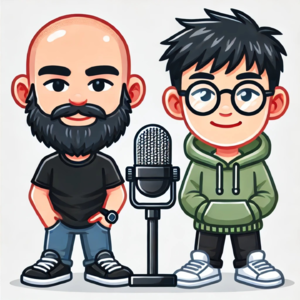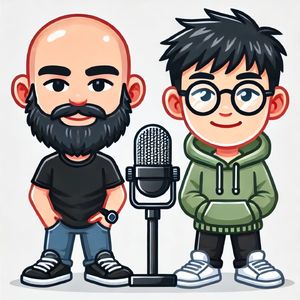Podcast Shownotes: Exploring Computer Science and AI's Impact - Episode 20
Introduction
Time: 00:19
Welcome to episode 20! In today's episode, we provide an overview of computer science, highlighting its sub-disciplines and future career paths, especially in the context of AI's influence. Whether you're technical or not, this episode offers something for everyone. Enjoy the discussion!
Key Discussion Points
Overview of Computer Science Sub-Disciplines
Time: 00:34
Discussion: We start by introducing the various sub-disciplines under the computer science umbrella, providing options and recommendations for people considering this field.
Key Insights:
Computer science influences nearly every aspect of modern life, from mobile apps to AI. Its reach is vast and continues to grow.
Sub-disciplines include software programming, web development, data science, computer architecture, networks, security, blockchain, and AI.
The Ubiquity of Computer Science and Problem-Solving Skills
Time: 01:07
Discussion: We explore the importance of foundational computer science knowledge and the problem-solving skills it cultivates.
Key Insights:
Computer science is fundamentally about problem-solving. It requires clear and systematic thinking to instruct computers to behave in specific ways.
Learning computer science opens up global tech opportunities, high-paying careers, and roles across multiple industries.
High-Paying Careers in Tech
Time: 04:45
Discussion: The earning potential in various computer science roles was discussed, with a focus on US salaries.
Key Insights:
Average salaries vary by region, company, and experience. Software developers earn around $144K annually, web developers around $64K, and data scientists about $122K.
Product managers and cloud computing engineers can earn around $120K, while academic roles in computer science pay around $85K per year.
Getting Started with Coding
Time: 08:41
Discussion: Fong offers advice on how beginners can get started with coding and what online resources are available.
Key Insights:
Free coding platforms like W3Schools and FreeCodeCamp were recommended, along with paid options like CodeAcademy and Udemy.
YouTube was also suggested as a resource for coding tutorials, though it may not always offer the most structured learning approach.
Choosing a Programming Language
Time: 12:05
Discussion: Which programming language should beginners start with?
Key Insights:
Python is recommended for beginners due to its simplicity and versatility.
Other important languages include JavaScript for web development, Java for more complex applications, SQL for database management, and C++ for low-level system programming and game development. R is mentioned for statistical computing and is crucial for aspiring data scientists.



 33
33 0
0